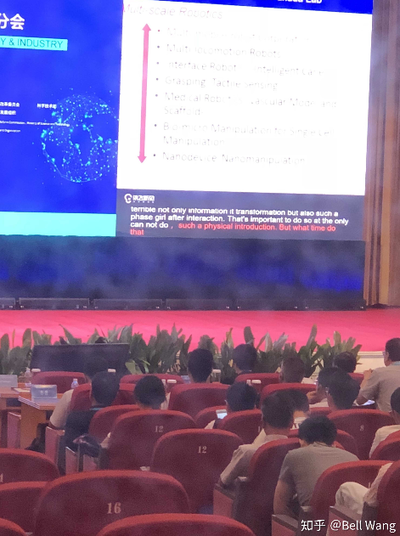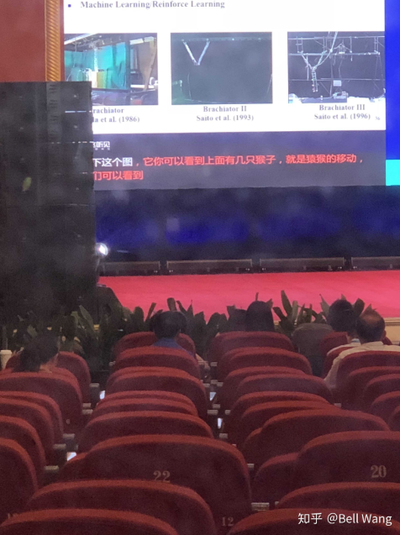|
FIT Prizes 2022
Congratulations to all the winners of the FIT Prizes 2022. Thanks go to all our member associations who made nominations, those who served as volunteers on the many juries, the members of the FIT Awards Committee, consisting of the Chair Reina de Bettendorf, Sandra Bertolini, Eleanor Cornelius, and to all those winners who could not attend and sent in videos and representatives.
1 Comment
Billedmediaoversættere (FBO), Denmark
Asociación de Traductores e Intérpretes Oficiales (ANTIO), Costa Rica Association sénégalaise des traducteurs (ASTRA), Senegal Colegio Mexicano de Intérpretes de Conferencias (CMIC), Mexico Association of translators and editors of subtitles “Eurasian subtitlers’ league” (ESL), Russia Danish Association of Certified Translators and Interpreters (DACTI), Denmark New England Translators Association (NETA), United States Association of Translators and Interpreters of Slovenia (DPTS), Slovenia Ukrainian Association of Translators and Interpreters (UATI), Ukraine Iranian Association of Certified Translators and Interpreters (IACTI), Iran Association of Certified Public Translators (ACPT), Lebanon East African Interpreters and Translators Association (EAITA), Kenya Colegio de Traductores Públicos de la Provincia de Córdoba (CTPPC), Argentina Association of Translators and Interpreters of Alberta (ATIA), Canada Estonian Association of Masters in Conference Interpreting and Translation (ETML), Estonia Asociación Mexicana de Traductores Literarios, A.C. (AMETLI), Mexico Asociación Nacional de Traductores e Intérpretes Oficiales (ANATI-O), Colombia Arab Professional Translators Society (APTS), Lebanon Associação Profissional de Tradutores Públicos e Intérpretes Comerciais Juramentados do Estado do Rio de Janeiro (ATP-RIO), Brazil Colegio de Traductores de la Provincia de Santa Fe (CTPSF), Argentina Associação de Tradutores e Intérpretes de Moçambique (ATIM), Mozambique Association of Interpreters and Translators (AIT), United Kingdom Associate members Department of Translation of the Universidad Intercontinental (UIC) Macao Polytechnic Institute (MPI) Peoples’ Friendship University of Russia – RUDN University Center for Language Studies (CLS) at Brigham Young University School of Translation and Foreign Languages (STFL) at The Hang Seng University of Hong Kong (HSUHK) National Accreditation Authority for Translators and Interpreters Ltd (NAATI) iFLYTEK, which is one of the top technological companies listed in the "AI development strategy" issued by the government, is a Chinese pioneer in AI innovation. The company mainly works on verbal language recognition and interpreting, and it is said that it will lead the AI technology development in China.
Be that as it may, a week ago, iFLYTEK was blamed for deceiving their audience into thinking that its “AI Interpreter” was naturally interpreting the spokespersons in the seminar, where actually the speeches were interpreted by human interpreters. This Code of Ethics, which is complied by the AUSIT, is intended to regulate the professional conduct of translators and interpreters. Nowadays, a large number of agencies, institutions, language service providers and purchasers of interpreting and translating services require practitioners who work with them to adhere to this Code of Ethics. It is recognized as setting a general standard for interpreting and translating. The following Code of Ethics defines the values and principles guiding the decisions interpreting and translating professionals make in practice. 1. How do professional interpreters outperform the novice? The performance of professional interpreters is described by fewer mistakes, superior language skills and quicker reactions, and the professionals are better at producing more accurate interpreting rendition than novice interpreters. However, what makes professional interpreter different from novices goes beyond accuracy and language ability. Professional interpreters may not differ from novices in the syntactic processing of comprehension, but they do differ in their ability to use more flexible processing skills. One such processing strategy is their ability to perceive and distinguish the importance of the input material, and to pay more attention to the overall conceptual framework of the source speech, allowing them to predict upcoming information, or, in consecutive interpreting, use “cutting-in” technique when the speakers “lose control”. Through extended practice in consecutive and simultaneous interpreting between two specific languages, professional interpreters may also develop the ability to recognise patterns in the equivalence relation between the two languages, which allows a faster transition from the source language to the target language. What’s more, the professionals have learned how to manage their cognitive effort and allocate their attention, enabling them to work efficiently under high pressure situation. (Adapted from a research outcome by Minhua Liu) Literally speaking, novice interpreters should not enter into the interpreting service market, as they are inexperienced, lack extended practice, and sometimes pose undermined risks to an important conference, but they are often used by clients who have a tight budget. However, buying quality is always more significant than saving money in a conference, as interpreting performance does affect the professionalism of an event. Please take a look at the following case, and you will know why it is not wise for organizers to use novice interpreting service in their important events. (Written by Belink Translation, on 3rd July 2018, Sydney, Australia) 2. Case examined Each Speech contains three segments: Speaker - the original speaker Novice - what did the novice interpreter say…? (supported by back translation) Professional - what would a professional interpreter render into…? (supported by back translation) Speaker: Good afternoon. Good to see you, everybody. I was told to step behind this, look like cross. So I put my notes there. My name is Oscar and has a translator with me. (Look at the interpreter)You wanna introduce yourself? Novice: 大家好,啊我们是今天是厚博学院,然后这位是安建华先生,然后我是今天的现场翻译chris,但是我的英文水平呢没有那么好,可能翻译会有错误,请大家包涵,谢谢。(Hello everyone, ah, we are from Houbo College today. Then, this is Mr. Oscar, and I am today’s interpreter, Chris. But my English is not so good, and there might be some errors, please bear with me. Thank you.) Professional: 下午好,很高兴见到各位。他们跟我说要站在这个像十字的地方的后面,所以我把我的演讲词放在这儿。我的名字叫Oscar, 我身边是我的翻译 / 大家好,我是今天的口译员。(Good afternoon, nice to meet you all. They told me to stand behind this cross-like place, so I put my speech notes here. My name is Oscar, and this is my translator. / Hello everyone, I am the interpreter today.) Speaker: I have twenty minutes for you. Uh, so it's a pretty short time and I’m breaking down the twenty minutes into twenty chapters. First chapter is introduction about me. Novice: 啊今天安建华先生会用20分钟时间做这个演讲,然后他会先介绍他自己。(Umm… Today, Mr. Oscar will give this speech in 20 minutes, and he will introduce himself first.) Professional: 今天我有20分钟站在这里给你们讲演,20分钟十分短暂,那么我将把这20分钟分成20个部分。首先第一个部分是自我介绍。(Today, I will be here for 20 minutes and give you a speech. It is very short for only 20 minutes, but I will divide the 20 minutes into 20 parts. The first part is the introduction.) Speaker: I’m born nineteen seventy two, which means I’m pretty old already forty six. I have spent the nearly last twenty years in shanghai. And in the last five years, I’m uh, pretty globally, uh, in my life, which means I’m spending time distributed between Europe, china, and united states, which is the first time. So you could say my life became more and more global during my years in life so far. Novice: 呃安建华先生今年啊是1972,1972年出生,今年快40岁,然后他在五年之前来到来到上海,然后现在他的生活是在上海欧洲和美国之间。美国之间呃做就是一个全球性的这么一个连接,吧。 (Umm… Mr. Oscar was born in 1972, born in 1972. He is almost 40 years old this year. Then he came to Shanghai five years ago, and now he lives between Shanghai, Europe and the US, doing some kind of a global connection between something with the US.) Professional: 我生于1972年,意味着我已经46岁了。在过去20年里我几乎都在上海度过。在过去5年里,我活跃与世界各地,活跃于中国、欧洲国家和美国,这是我有生之年未曾经历的。所以,你可以说,我的活得越来越全球化了。(I was born in 1972, which means I am 46 years old. I have spent almost all of my time in Shanghai in the past 20 years. In the past five years, I have been very active in the world, especially in China, European countries, and the US, which I haven’t experienced in my lifetime. So you can say that my life is getting more and more global.) Speaker: I want to use the second minute talk about education. Novice: 噢我想用二我想要一点时间来说一下关于那个教育的事情。(Oh… I want to use two… I want to have a little time to talk about the education) Professional: 我想用第二分钟谈一下教育的问题。(I want to talk about education in the second minute.) Speaker: Education is a big buzzword. Nowadays, a lot of people are entering the market of education. Novice: 教育是一个长期的一个东西,是一个很关键的一个东西,对我们呃对我们人类来说是一个非常重要的东西。(Education is a long-term thing, a very very important thing. It is a pretty important thing for us as human beings.) Professional: 教育,是一个流行词。如今,许多人正涌进教育市场。(Education is a buzzword. Today, many people are pouring into the education market.) Speaker: But what most people forget is the way how we learn when they look at education. Novice: 但是大部分的人已经忘记了一个教育的初衷。(But most people have forgotten the original intention of education.) Professional: 但是,大多数人所忘记的是我们在看待教育时候的学习方式。(What most people have forgotten, however, is the way we learn when we look at education.) Speaker: So time is running fast. I'm already in my third minute, third minute, that is dedicated to the topic of learning. I try a new concept of lecture today. And I’m talking about me for the rest of the time. And behind me, you see, uh, some similar to media that is flowing onto us nowadays everywhere, a pretty fast slide show, which is independent of what I’m saying. So I’m talking about me and I’m giving you some uh media coverage to keep your alert behind me. IT's a new concept I’m trying out today for the first time. Novice: 啊我会我会说一下关于我的事情,然后在大屏幕上会说一下关于就是我的想法,我的一些对教育的一些就是嗯对教育的一些想法。(enn... I will tell you about me, and then I will talk about it on the big screen, talk about some things about education, yeah, some ideas about education.) Professional: 时间过得很快,我已经进入了第三分钟了。第三分钟我们主要讨论学习的主题。今天我尝试了新的讲演概念,在后面的时间我也将谈论到关于我自己的东西。你们可以看到我身后东西。你也会意识到,一些相似的媒体信息正日益充斥着我们的生活。这些闪现飞快的幻灯片独立于我所说的东西。因此,我在谈论我自己的同时,也在给你们一些媒体信息,以提醒你们。这是我第一次尝试运用这么新的讲演概念。(Time passed quickly. I have entered the third minute. In the third minute, we mainly discuss the topic of learning. Today, I tried a new lecture concept, and I will talk about my things at a later time. You can see some things behind me. You will also realise that some similar media information is increasingly filling our lives. These flashy slides are independent of what I said. So, while I am talking about myself, I am also giving you some media information to remind you. This is my first attempt to apply this new concept in my lecture.) - (Speeches Adapted from a real case in “Future Temperature: Cross-border Speech Conference” “未来的温度”跨界演讲大会 on 2nd June, 2018, in the Hangzhou International Expo Centre) |
TRANSLATION OR INTERPRETINGIf you need help with translation or interpreting, please email us at zz@belinktrans.com or lucia.cheung@belinktrans.com Archives
September 2022
|
How to find us?
Headquarters Address: |
Need URGENT help with translation?Contact us at email zmm@belinktrans.com and judy.chan@belinktrans.com for urgent translation service !
Our Media Channels
|




